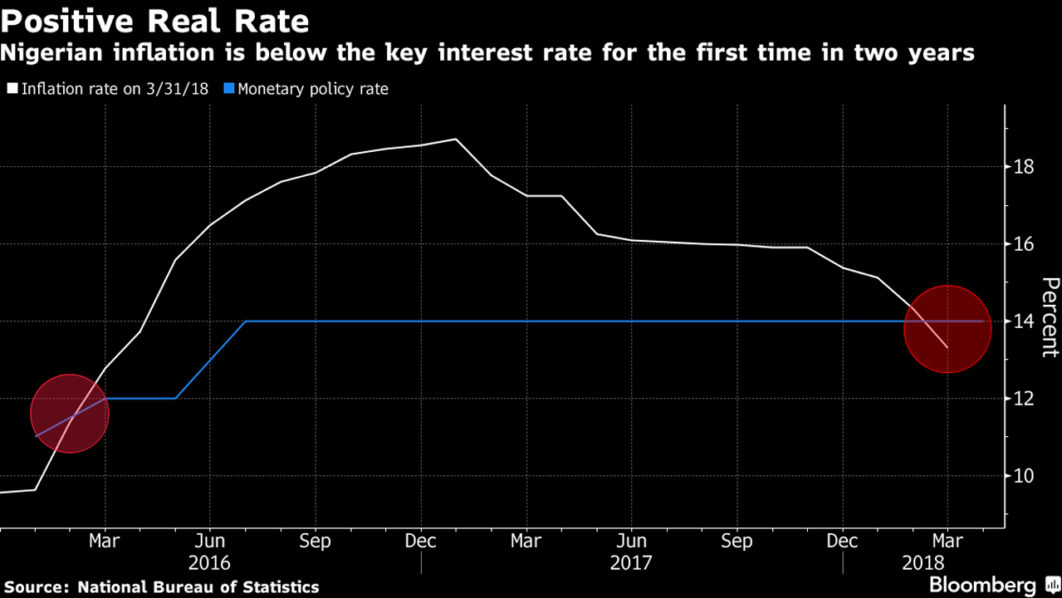Nigerian inflation slowed for a 14th straight month in March, taking consumer-price growth below the benchmark interest rate for the first time in two years and opening the door for a rate cut.
Consumer inflation in Africa’s most-populous nation decelerated to 13.3 percent from a year earlier, the lowest rate in two years and below the benchmark rate of 14 percent.
Nigeria’s central bank left its main lending rate at a record high of 14 percent when policy makers met April 4 to continue fighting inflation that’s been above the target range of 6 percent to 9 percent for more than 2 1/2 years. Governor Godwin Emefiele said the bank would consider cutting rates from where they have been since July 2016 when inflation slows closer to single digits.
“Absolutely, they now have more scope to cut rates because of the pronounced drop in inflation,” Razia Khan, head of macroeconomic research at Standard Chartered Bank Plc, said by phone from London.
The median estimate in a Bloomberg survey was for annual price growth to slow to 13.6 percent. Inflation slowed from 14.3 percent in February, the Abuja-based National Bureau of Statistics said in a statement.
Food-price inflation decelerated to 16.1 percent in March the weakest rate of growth since July 2016, it said.
The cost of gasoline climbed to an average 9.4 percent in March to 163.4 naira ($0.46) a liter (0.3 gallon) from a year earlier, said the bureau, whose data includes unofficial pump prices. Nigeria currently caps gasoline retail prices at 145 naira per liter.
Price Pressure
Inflationary pressures could come from higher spending in the second half of the year, before general elections scheduled for February, according to Nigeria’s statistician-general, Yemi Kale, said earlier this year. Lawmakers said they could vote on this year’s budget April 24. In the spending plan, President Muhammadu Buhari proposed a 16 percent increase in expenditure to 8.6 trillion naira.
Scope for cuts is limited, said Michael Famoroti, an economist at Lagos-based Vetiva Capital Management Ltd.
“Inflation will rise because of elections spending, expectations of a rise in U.S, interest rates, and expectations of a minimum-wage increase, probably in the second half of the year,” he said by phone. “So the MPC can celebrate the inflation drop in March, but be prudent knowing the outlook might be different in the second half.”
Source: Guardian




